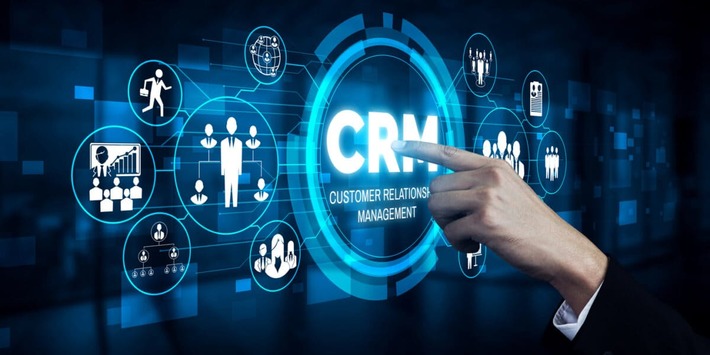Marketing, sales, and service all go under the banner of customer relationship management (CRM), a commercial software system that covers all elements of interactions between a firm and its customers. When describing a B2C (business-to-consumer) connection, the term most widely used is CRM for small businesses. However, CRM is also used to handle B2B partnerships. A typical CRM system tracks and manages information on sales possibilities, contacts or client accounts, marketing and sales activity, bids and contracts, and sales processes, regardless of the firm’s size.
Sales, marketing, and customer service may work together more efficiently using CRM, a business discipline that aims to assist departments such as marketing and sales to strengthen their fundamental competitiveness.
CRM’s Business Advantages
Corporate sales and marketing procedures and internal resources may all be improved with a comprehensive CRM package. A typical sales firm uses simple CRM to connect back-office resources to front-end client interactions. Having all of a company’s client data in one place is the most significant advantage that most organisations notice when switching to an easy CRM system. Customers’ data used to be scattered across various formats, including word processing files, spreadsheets, email, PDAs, and even paper note cards, until CRM systems were developed in the 1990s.
Customers’ data from various departments (such as sales, marketing, service and HR) may be stored in a single digital place, which offers management and sales teams rapid access to the most up-to-date data whenever necessary. Small companies profit from a CRM system on two levels: the backend and the front-end. CRM Landscaping software:
- both a look back and a look forwards at current market developments.
- Increase efficiency by standardising and automating the sales process,
- focuses resources on the most important tasks
- Sales and marketing activities are replicated using the most acceptable methods available.
- It helps to handle risks better.
All of the best simple CRM solutions for small businesses can improve customer retention and increase revenue by allowing businesses to create and provide customised products, services and marketing experiences tailored to the needs and preferences of individual customers.
Customer Relationship Management (CRM)
No matter how big or small, every firm today is a part of the global economic ecosystem. In reality, it has never been easier to get into the market before. Businesses in today’s globally interconnected world are turning to a range of productivity and efficiency-enhancing company management software solutions to stay ahead of the competition. CRM is only one of a slew of business software options out there. Corporate application suppliers can construct solutions that handle practically every area of value chain activities with tremendous depth and breadth thanks to the service-oriented architecture (SOA) design approach (small and midsize businesses).
Suppose you’re a small organisation with few IT or business analysis resources. In that case, it might be challenging to keep up with all the solution terminology, such as ERP, supply chain management, or project portfolio management (PPM) for professional services automation (PSA). To make matters even more complicated, there are functional overlaps across various solution platforms. For instance, “inventory management” may be found in ERP and its variations, SCM, CRM, sales force automation (SFA), as well as other subsets of software programmes.
It’s hardly a surprise that there is some overlap between the two fields. Furthermore, since ERP is the foundation of our present business solution hierarchy, we may expect to see ERP function modules incorporated into other solution platforms.

Which Kind Of Businesses Are Most Suited To Use CRM? What’s The Reason Behind This?
Finding your company’s critical business operations may be done simply by locating your organisation in the market value chain. SCM or ERP are preferable options if your primary activities are on your organisation’s supply and manufacturing (upstream) side. Instead of paying for an expensive end-to-end ERP package, consider the deployment of CRM for small businesses (or other CRM subset solutions) if your critical operations are on the market engagement side (downstream) of the chain, such as buying and selling, B2C/B2B engagements, services and marketing.
Criteria for Choosing a CRM in a Small Business
Compared to giant corporations, small companies have specific software needs that must be considered when making a software purchase. In this article, we’ll examine some of the most pressing concerns small businesses have when making a CRM software pick.
Regarding solution selection, most small companies face the same issue regarding cash flow, as seen by the numerous CRM selection projects we’ve completed for small businesses here at TEC. In most CRM implementations, upfront licence and maintenance costs are the most important considerations for these firms. The following are the factors used to make the final decision:
- Specs and capabilities
- Affordability
- Layout and design of the workflow
- Security
Small companies must examine these selection factors while making a CRM comparison for small firms. Therefore, we will go through them one at a time.

